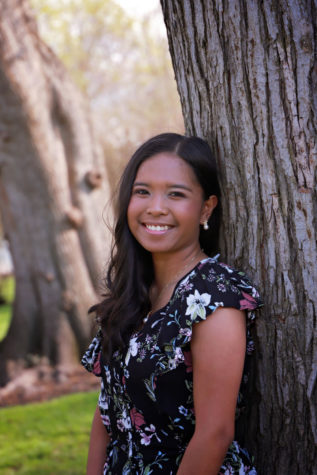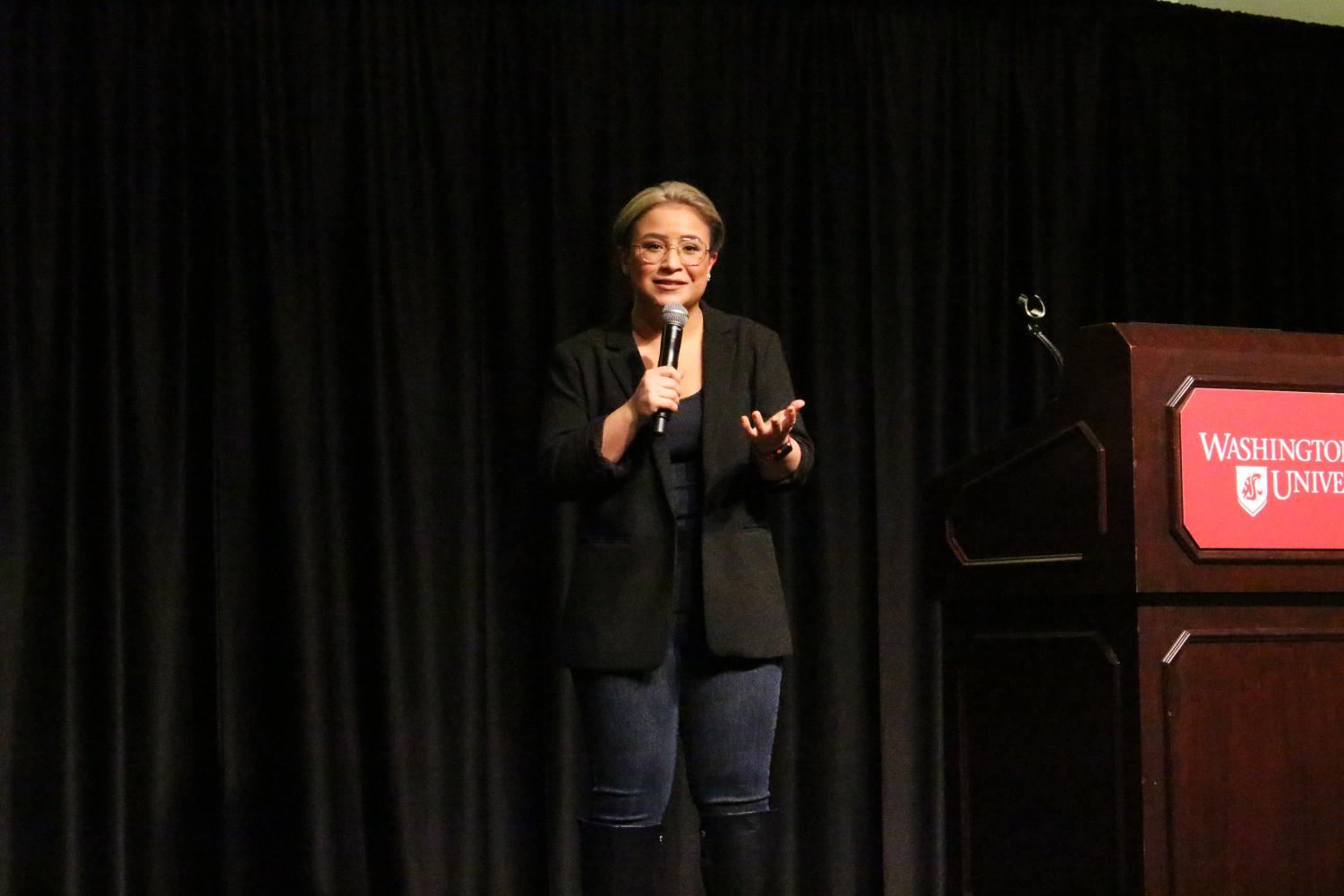
Loren Negron served as the editor-in-chief for fall 2021. She started working for The Daily Evergreen as a news reporter in fall 2019 and moved her way...


February 28, 2020
Rethinking how life should be lived is an endeavor Dior Vargas, a mental health activist, is continuously pursuing.
“I am actively trying to dismantle this idea that pain and suffering is a way of life,” Vargas said during her keynote speech Wednesday at the CUB Senior Ballroom.
Vargas is a Latinx feminist mental health activist. Her advocacy stems from her experiences with depression, anxiety and traits of borderline personality disorder. She is also a suicide attempt survivor.
“Mental illness is something that not only a person is dealing with”
Activist Dior Vargas
At a young age, Vargas said she witnessed incidents of domestic violence. She was about seven years old when her parents separated, leaving her mom to take care of two daughters and pay months of unpaid rent. Vargas said she experienced various types of trauma growing up.
“I didn’t want to be a burden to my mom,” she said. “Everything I was experiencing, mental health-wise, I kept to myself.”
Around eight years old, she said she started experiencing suicidal ideation which is a health condition where one plans or thinks about suicide. She was 11 years old when she wrote her first suicide note. Vargas said she still remembers writing in her pink ballerina diary that her life was over.
One particular experience caused her to realize her actions had consequences. She was taken to an emergency room and was then moved to a psychiatric ward. Any personal items she could use to potentially harm herself were taken away.
“I was being punished,” Vargas said. “I was robbed of more than my freedom, and I couldn’t even keep a pen to write in my journal.”
Having undergone all that, Vargas decided to be an active participant in her healthcare. She started going to therapy and taking medication, wanting to prioritize her mental health. Vargas said she would update her family on her well-being.
“Mental illness is something that not only a person is dealing with,” Vargas said. “It also affects the families as well.”
Mental health and mental illness were topics Vargas’ family did not discuss, she said. This helped spark her desire to find ways to honor the discussion of mental health, especially in communities of color.
She said taking the first step to healing does not have to be a huge step. Engaging in self-reflection is something anyone can do. She said starting therapy as that first step is an opportunity to give time for self-care.
In addition, Vargas emphasized self-empathy and self-love. She said sitting down in a quiet space and writing can help separate a person from their feelings, which can help during the process of self-forgiveness.
“We’re ready to forgive other people,” Vargas said. “Why can’t we show ourselves that same empathy and forgive ourselves?”
Ana Sotelo, junior majoring in communications, said she has heard self-empathy mentioned many times. However, she did not understand what that meant until after Vargas spoke.
“For her to say that if you give empathy to others, if you show it somehow, then that’s what it looks like, and perhaps you should try that for yourself,” Sotelo said.
Vargas said survival makes up the core of her identity. She said she wants to live a life of service where she can use her experiences to help others and amplify people’s stories.
“I’m not perfect,” she said, “but it doesn’t stop me from trying to do what I want to do or what I need to do.”
Discussing life should be done in terms of quality, Vargas said. Oftentimes, families are raised with an image of the American dream: having food on the table, a good job, a family and a home.
“We focus on making sure that the next generation has it better than the next, so why isn’t mental health a part of that?” she said. “Mental health is the center of it all.”
Vargas said it is important to be ready before deciding to pursue an endeavor. She said unpreparedness could lead to unintended consequences. Mental health should not be sacrificed for the sake of the cause, she said.
Xitlali Herrera, sophomore majoring in wildlife ecology and conservation and a student mentor for the Chicanx Latinx Student Center, said Vargas provides the intersectionality of identities together. She said Vargas’ work reminds people that everyone is going through something mentally.
Herrera said college students often get over involved due to the belief that they need to do everything.
“I feel like mental health is definitely the first to go when it comes to being a college student at WSU,” she said.
Ellen Taylor, associate vice president for student engagement, said Vargas highlights topics the Division of Student Affairs has been focusing on. This includes mental health, well-being as well as equity and inclusion. This all helps nurture a healthier community in WSU, she said.
The event’s sponsors include ASWSU, GPSA, Center for Fraternity and Sorority Life, University Recreation, Residential Life, Graduate School and the Student Entertainment Board. About 400 people attended the keynote event.

Loren Negron served as the editor-in-chief for fall 2021. She started working for The Daily Evergreen as a news reporter in fall 2019 and moved her way...